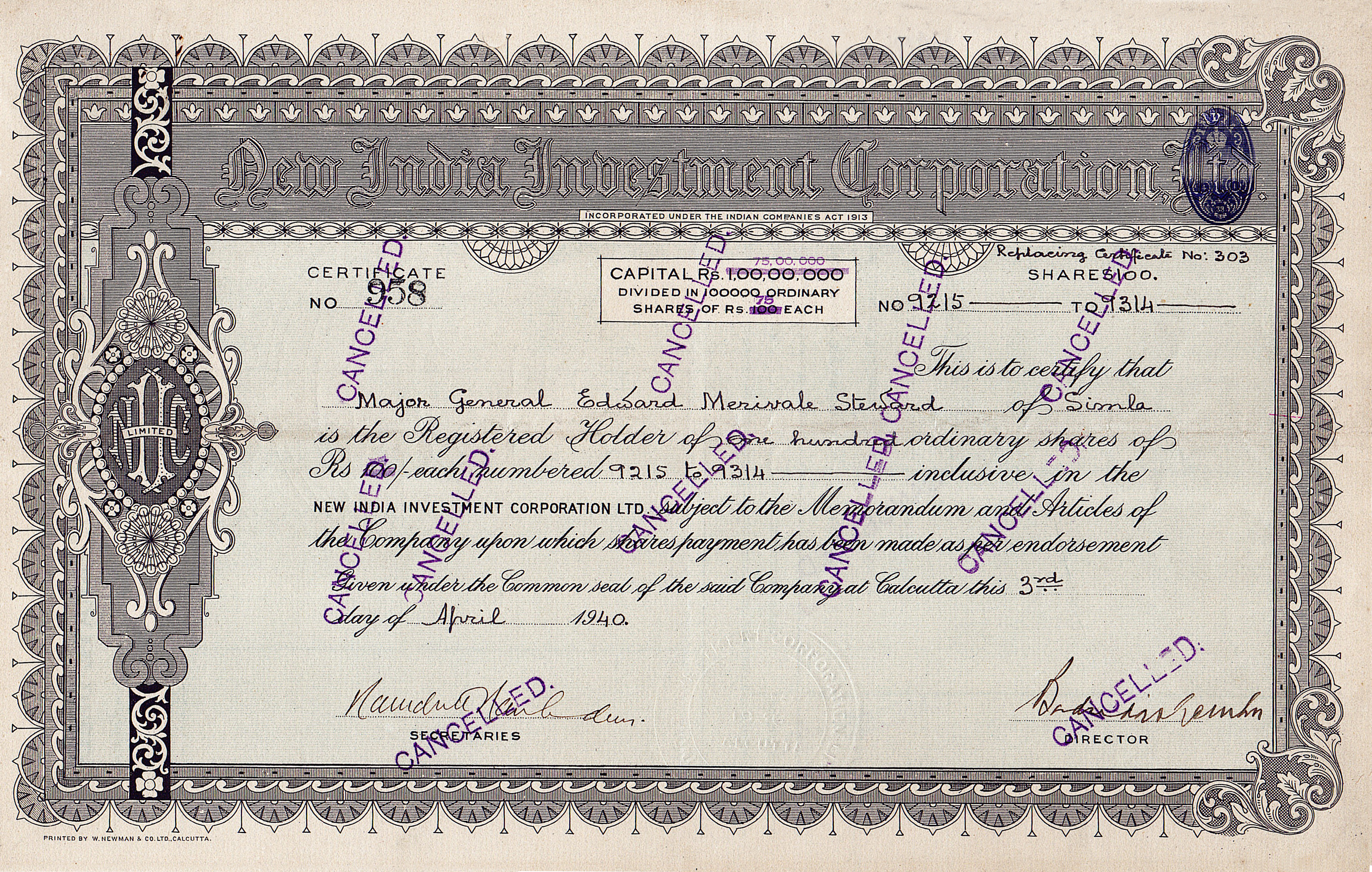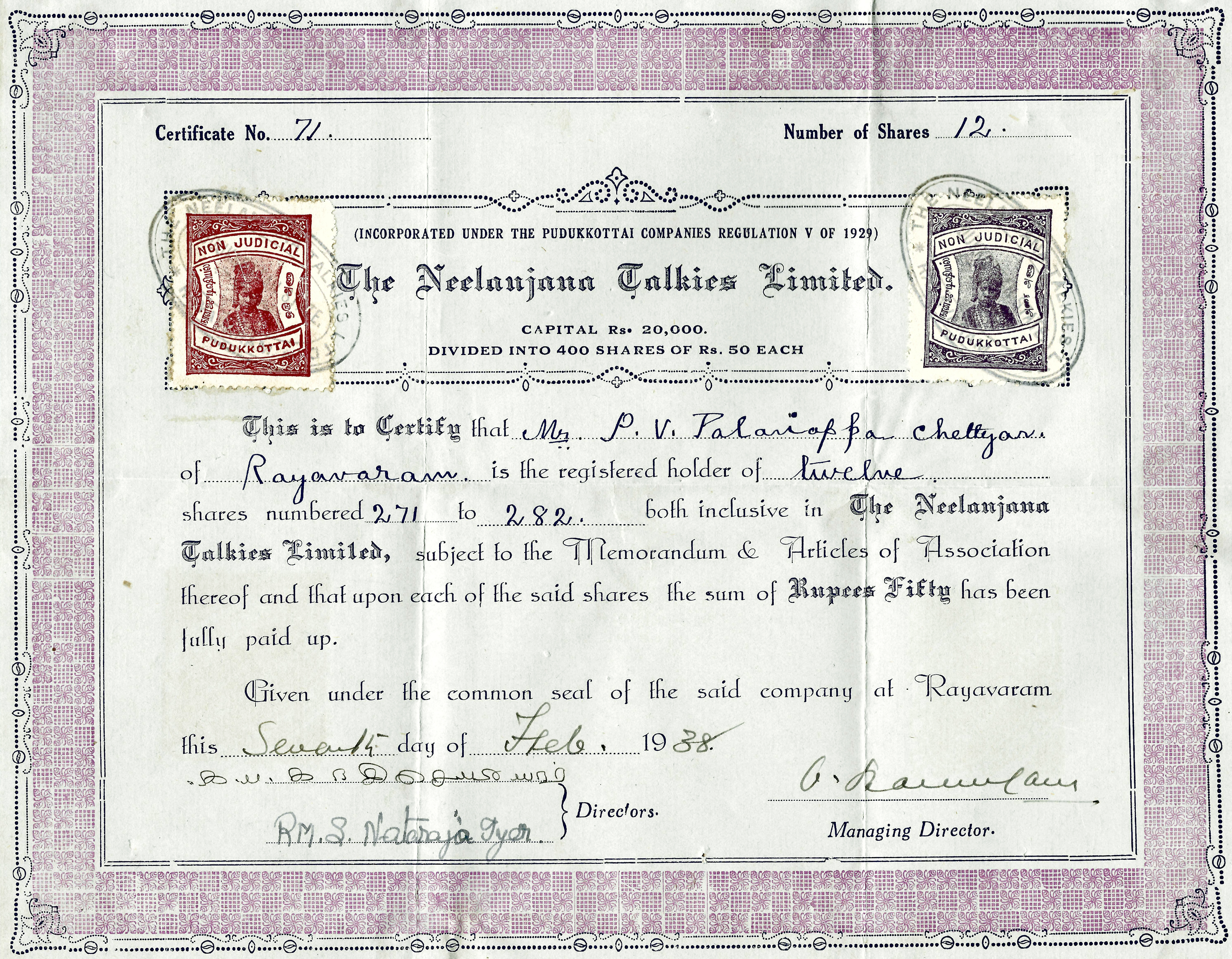Read Articles
Collectibles of Consultation Papers
Following is the collection various Consultation Papers of Indian Securities Market. The Consultation Papers may be downloaded from the link provided.
Report on market monitoring and surveillance for commodity exchange
Market Surveillance is monitoring of market functioning and trades on Real time basis. The surveillance system is able to detect a wide range of possible market misconduct situations on real-time basis. The exchange monitors trading to prevent manipulation, price distortion and disruptions of trading. The report suggested changes in following areas for improvements in market surveillance and monitoring: • Floor trading practices • Strengthening of the executive teams • Board structures • Prevention of price manipulation • The creation of continuous liquid markets • Introduction of openly transparent markets
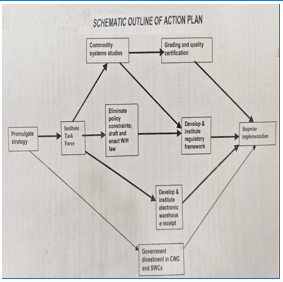
Report for the Strategy for the Development of Warehouse Receipt System for Agriculture in India
As part of the World Bank Programme aimed at the improvement of the commodity futures exchange in India, Forward Market Commission, Government of India and the World Bank assigned consultancy to: • Assess the feasibility of the warehouse receipt system in the commodities markets with specific emphasis on edible oilseeds, oils and oil cakes, cotton and gur • Promote the warehouse receipt system • Formulate a detailed and phased action plan for implementation The major conclusions of the report are: • The success of the "organized" warehouse receipt system in India requires the elimination of all obstacles in the agricultural sector, as partial elimination may lead to failure and the mistaken belief that warehouse receipts are unsuitable for the country. • Existing government warehousing corporations should take a leading role in developing warehousing, but private operators, especially those already providing storage services, should also be allowed to participate. • Additionally, divestment should be pursued to enhance the private sector orientation and autonomy of these corporations.
Legal Entity Identifier for all Non-Individual FPIs
In order to improve the quality and accuracy of financial data systems, all non-individual FPIs were mandated to provide their Legal Entity Identifier (LEI) details in the Common Application Form (CAF). Further, FPIs were also mandated to ensure that their LEI is active at all times. Accounts of FPIs with expired/lapsed LEI codes were blocked for further purchases in the securities market till the time their LEI code is renewed.
Disclosure based Framework for FPIs
Certain FPIs have been observed to hold a concentrated portion of their equity investments in single Indian companies or corporate groups, raising concerns about regulatory circumvention. Identifying beneficial owners of FPIs remains difficult due to fragmented ownership. New SEBI regulations mandate detailed disclosures on persons having any ownership, economic interest, or control in FPIs with significant Indian equity holdings to ensure market stability and transparency.
Recognition to ‘Stock Exchange’ as a Body for Administration and Supervision of Research Analysts and Investment Advisers
For the purpose of ease in administration and supervision of Research Analysts (RAs) and Investment Advisers (IAs), stock exchange was recognised as Research Analyst Administration and Supervisory Body (RAASB) and Investment Adviser Administration and Supervisory Body (IAASB).
Committee on “Strengthening Governance of Market Infrastructure Institutions”
SEBI had constituted a committee on “Strengthening Governance of Market Infrastructure Institutions” in April 2022, under the chairmanship of Shri G. Mahalingam, former WTM, SEBI, to review the existing governance framework and make recommendations for further strengthening of governance norms at MIIs. Key suggestions included: • measures for strengthening the role played by the governing board and committees of MIIs, • reviewing the requirements related to appointment and role and responsibility of directors on the board and Key Managerial Personnel (KMPs) and developing effective metrics for monitoring various aspects of their functioning, and • reviewing the policy on safekeeping and sharing of information held by MIIs, revisiting the code of conduct and code of ethics for directors of the governing board and KMPs and activities and governance of investee companies of MIIs. Based on the recommendations of the Committee and public comments on the same, SEBI approved various amendments to the SECC Regulations, 2018 and D&P Regulations, 2018 for strengthening governance norms relating to MIIs.
Revised comprehensive framework on offer for sale of shares through stock exchange mechanism
In order to enhance efficiency, ease of compliance and reduce cost based on deliberations in the Secondary Market Advisory Committee of SEBI and discussions with stock exchanges and clearing corporations, it has been decided that the promoters can also offer the shares to employees in OFS through the stock exchange mechanism, subject to certain conditions.
Introduction of a mechanism for offer for sale by promoters through the stock exchange
In order to enhance efficiency, ease of compliance and reduce cost based on deliberations in the Secondary Market Advisory Committee of SEBI and discussions with stock exchanges and clearing corporations, it has been decided that the promoters can also offer the shares to employees in OFS through the stock exchange mechanism, subject to certain conditions.
Participation of SEBI registered Foreign Portfolio Investors in Exchange Traded Commodity Derivatives in India
In order to enhance the liquidity, depth for efficient price discovery and price risk management in commodity derivatives segment, various committees including those constituted by the Government of India have recommended participation of institutional investors in the commodity derivatives markets. Taking cognizance of the fact that participation by Institutional investors and based on the recommendation of the Commodity Derivatives Advisory Committee (CDAC), SEBI allowed Category III Alternative Investment Funds, Mutual Funds and Portfolio Management Services were permitted to participate in ETCDs with certain conditions prescribed vide Circular dated June 21, 2017. The sub-group of CDAC recommended opening of ETCDs to other institutional investors in a phased manner. In phase I, Category III Alternative Investment Fund (AIF), Portfolio Management Services (PMS), Mutual Funds, Direct participation of foreign participants having exposure to commodities were allowed and in Phase II, Banks, Insurance/reinsurance companies, Foreign Portfolio Investors (FPIs), Pension Funds were permitted. While, Category III AIFs were already permitted, the participation by Mutual funds, FPIs were permitted subsequently vide circular dated April 26,2019 and September 29, 2022, respectively.
Watch Videos
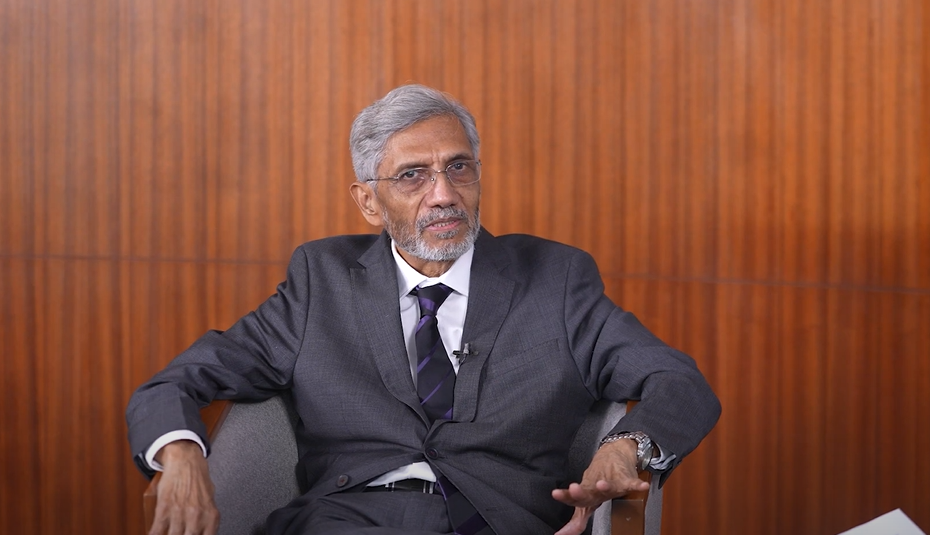
Prashant Saran (Highlight)
An interview with Prashant Saran, Former WTM Of SEBI | Date: 17 Oct 2023 | Duration: 00:14:14
.png)
Mr. Sayeed Cassim (Highlight)
An interview with Mr. Sayeed Cassim, Scripophilist | Date: 21 Sep 2023 | Duration: 00:05:41
.png)
Raman Uberoi (Highlight)
An interview with Raman Uberoi, Senior Advisor Government & Regulatory Relations, Crisil And Member Of SEBI's Market Data Advisory Committee | Date: 16 Oct 2023 | Duration: 00:05:18

S A Dave (Highlight)
An interview with S A Dave, Former Chairman Of SEBI | Date: 18 Oct 2023 | Duration: 00:09:42
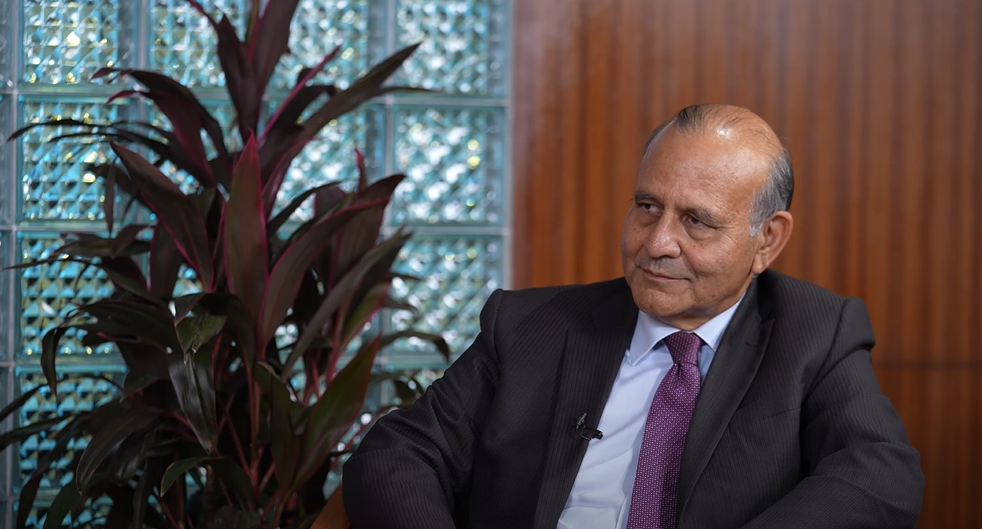
Leo Puri (Highlight)
An interview with Leo Puri, Former Chairman Of AMFI | Date: 17 July 2023 | Duration: 00:06:34
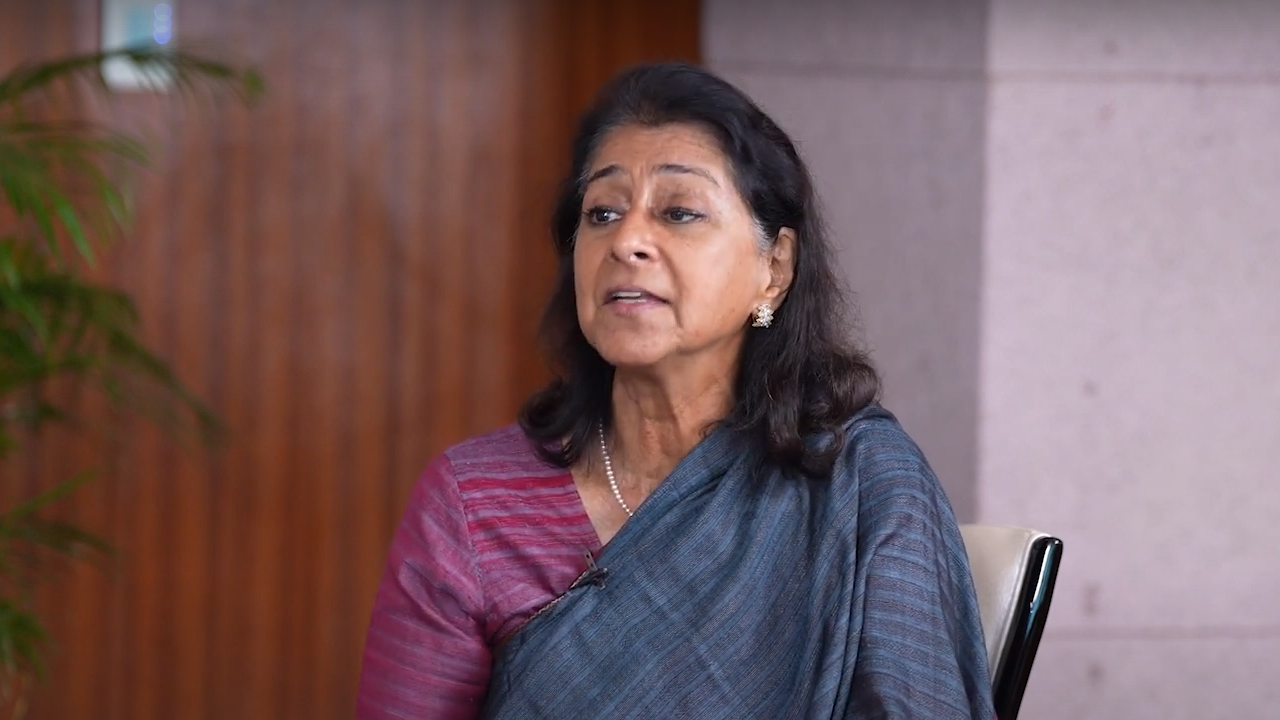
Naina Lal Kidwai (Highlight)
An interview with Naina Lal Kidwai, Chairperson of SEBI's- Primary Market Advisory Committee | Date: 22 Aug2023 | Duration: 00:04:15
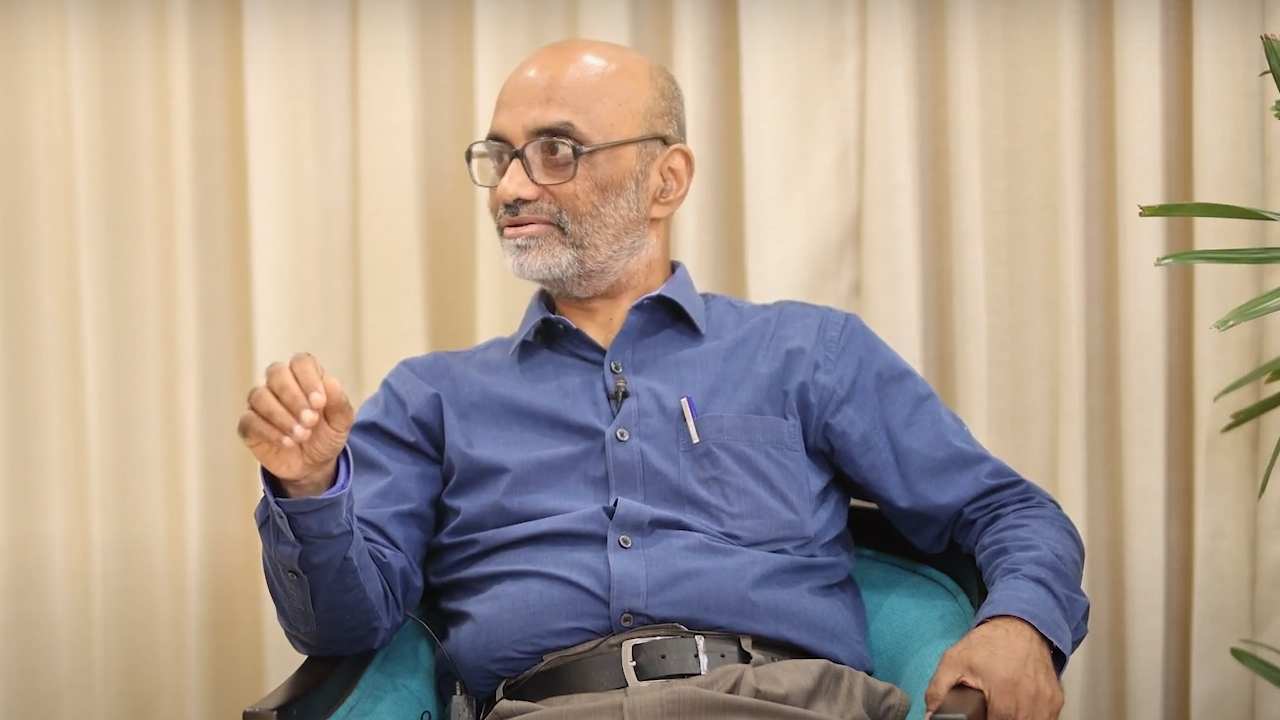
J R Varma (Highlight)
An interview with J R Varma, Former WTM Of SEBI | Date: 29 Sep 2023 | Duration: 00:06:14
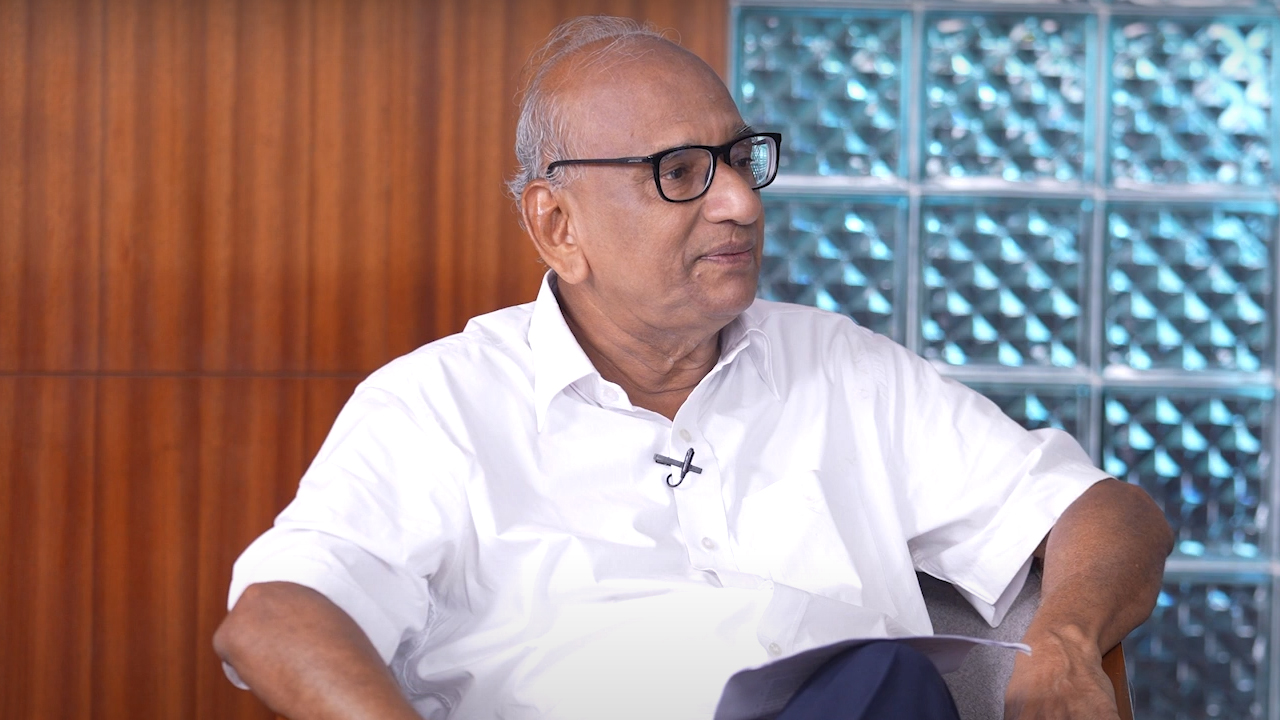
G Chandrasekhar (Highlight)
An interview with G Chandrasekhar, Member Of SEBI's Commodity Derivatives Advisory Committee | Date: 26 July 2023 | Duration: 00:13:35
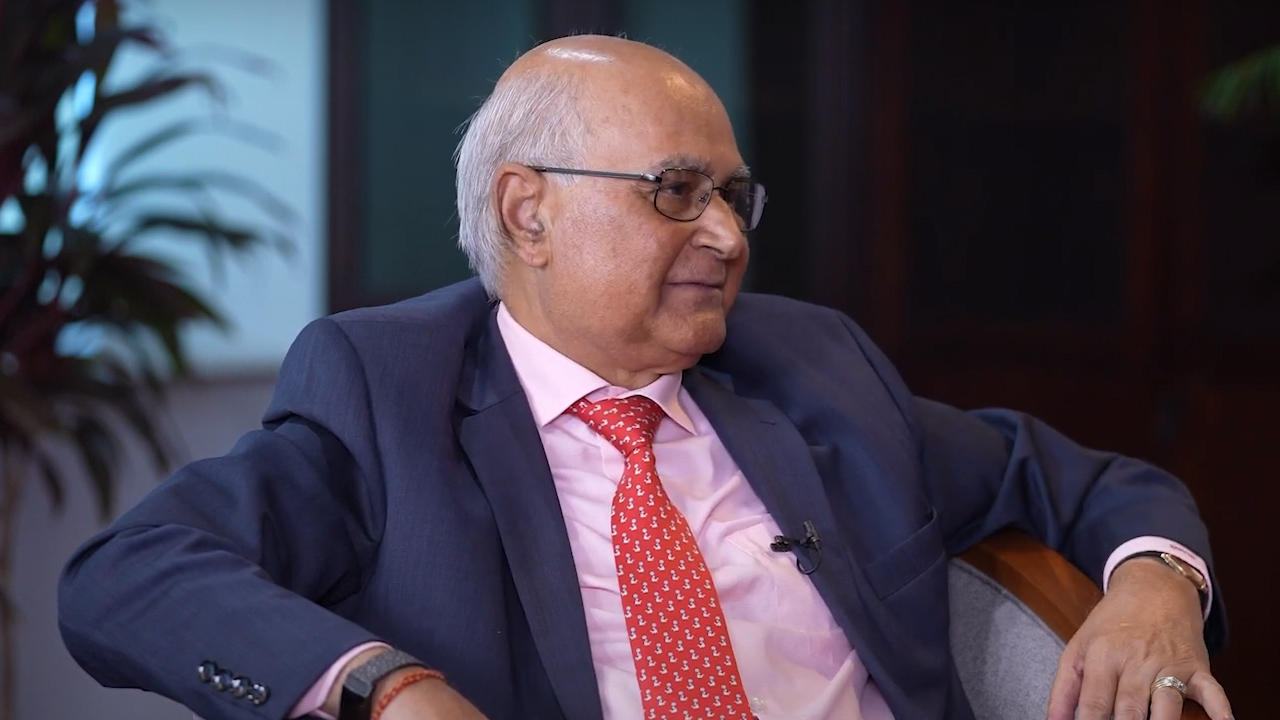
G N Bajpai (Highlight)
An interview with G N Bajpai, Former Chairman SEBI | Date: 18 July 2023 | Duration: 00: 05:30
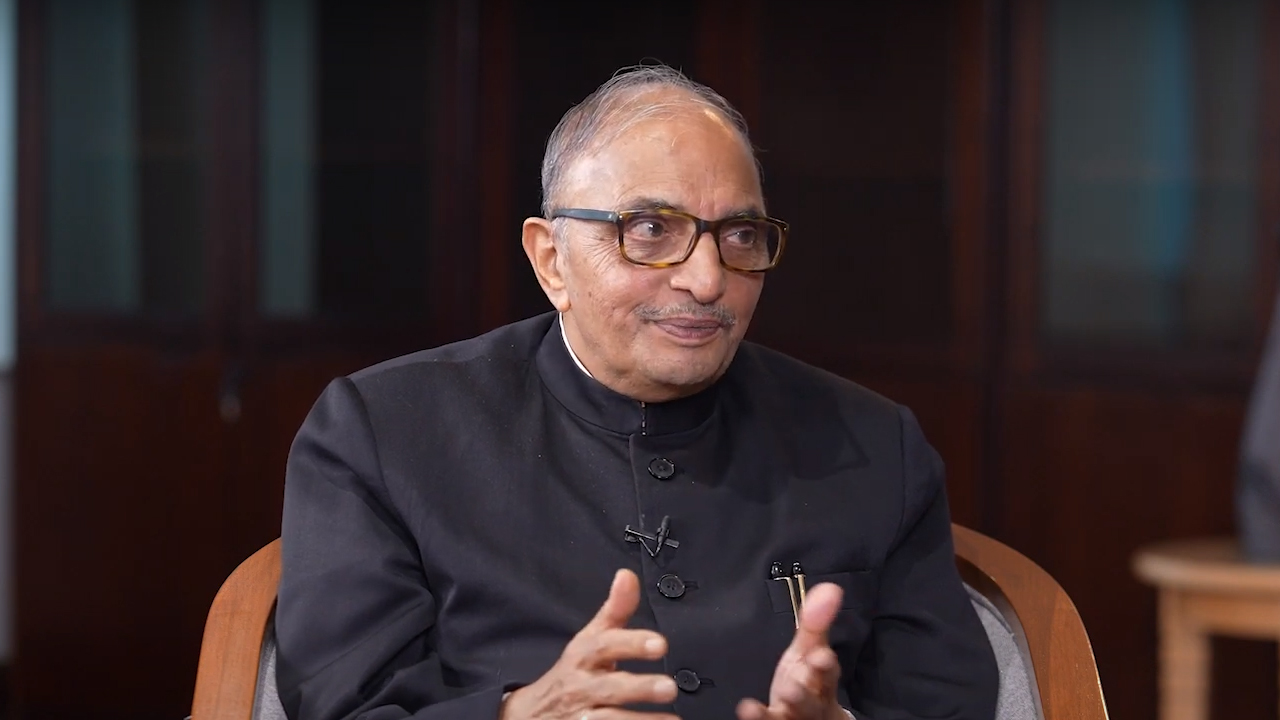
D B Phatak (Highlight)
An interview with D B Phatak, Chairman Of SEBI's Technical Advisory Committee | Date: 25 July 2023 | Duration: 00:03:14
View Images
.png)
A Journey from Dutch Ventures to India's Commerce
"1861-64: Dalal Street Bombay - The Fort Area Where Brokers Carried Business In the heart of Bombay, the bustling Dalal Street took shape in the 1860s, serving as a pivotal financial district where brokers conducted business. The 1880s: The Evolution of the BSE Logo from Inception to Present The 1880s marked a transformative phase for the Bombay Stock Exchange's iconic logo, symbolizing its enduring presence in the financial landscape. The 1900s: Original Location of the 'Neem Tree' with Traders Doing Business Throughout the 20th century, the 'Neem Tree' stood as a symbol of commerce, witnessing traders conducting business beneath its branches, capturing the essence of traditional Indian trade. The 1900s: BSE Building Reconstruction - Melding the Old with the New In this century, the Bombay Stock Exchange's building underwent a significant transformation, seamlessly blending the old with the new, signifying continuity in a changing world. 1908: The Old Building of Calcutta Stock Exchange In 1908, the Old Building of the Calcutta Stock Exchange served as a testament to India's enduring financial heritage."
.png)
Early debt instruments issued by the English East India Company
"The 1700s: Calcutta's Entrepreneurial Operations In the 1700s, Calcutta's vibrant marketplace came to life as a hub for traders and goods, setting the stage for future economic endeavors. 1769: The Rise and Fall of EIC Shares In 1769, British East India Company shares experienced dramatic fluctuations, reflecting the profound influence of the company on financial markets and marking a pivotal moment in economic history. 1832-33: Pioneering Early Debt Instruments by the English East India Company During these years, the English East India Company blazed a trail by introducing early debt instruments, a groundbreaking approach to securing capital for ambitious ventures. The 1850s: Formative Years - The Bombay Green and the Town Hall with Banyan Tree and Brokers Amidst the bustling Town Hall, the iconic Banyan Tree provided the backdrop for Bombay's formative years in the 1850s, where brokers forged deals and commerce thrived. 1875-2018: East India Company Trading with Indian Kings and Nawabs in 1805 The East India Company's trading partnerships with Indian royalty in 1805 revealed the intricate interplay between trade, diplomacy, and culture, a legacy that persisted into the modern era."
.png)
British East India Company, 1600-1874
"Founded on December 31, 1600, the British East India Company (EIC) held a pivotal role in the annals of global trade. Its joint stock shares were traded in London, consistently providing dividends until its dissolution in 1874. East India House, established in the 1720s, embodied the essence of EIC's operation. This unassuming yet bustling hub in London became the epicenter of early global commerce and finance for almost two centuries. Within its walls, momentous decisions were made. EIC, dealing in goods such as tea, spices, and textiles, charted treacherous seas and intricate trade networks, reaping profits and inviting controversy. The company's ships sailed to distant shores, impacting the course of history by shaping trade routes and influencing world events. East India House isn't adorned with the grandeur of palaces; instead, its halls resonate with tales of ambition, rivalry, and, occasionally, exploitation. This historic site embodies how business interests could profoundly shape the world. The museum plaque here commemorates a chapter where trade and finance converged, sometimes for the better, and at times, for the worse."
.png)
Dutch East India Company Bond, dated 7th November, 1623
"Early Trading Companies Two pioneering trading companies, the Dutch East India Company and the British East India Company, hold an esteemed place in the annals of financial history. In 1602, the Dutch East India Company, established with exclusive rights to East Indies trade, initiated a momentous event—the world's first Initial Public Offering (IPO). This groundbreaking offering heralded the birth of stock exchange trading, setting in motion a transformation in global commerce and investment. The British East India Company, founded on December 31, 1600, played a monumental role in the history of trade. Its joint stock shares were actively traded in London, signifying a burgeoning capital market. Notably, this enterprise consistently paid dividends to its investors, exemplifying reliability over centuries until its dissolution in 1874. In parallel, early debt instruments issued by the English East India Company, a predecessor to its British counterpart, demonstrated ingenuity in raising capital for ambitious ventures. These innovations in finance pushed the boundaries of what was conceivable in the realm of commerce. Together, these historical facts epitomize the genesis of modern financial systems. From the inaugural Dutch IPO, symbolizing the birth of stock exchange trading, to the British East India Company's unwavering dividends and inventive debt instruments, these companies laid the foundation for the contemporary financial markets we know today."
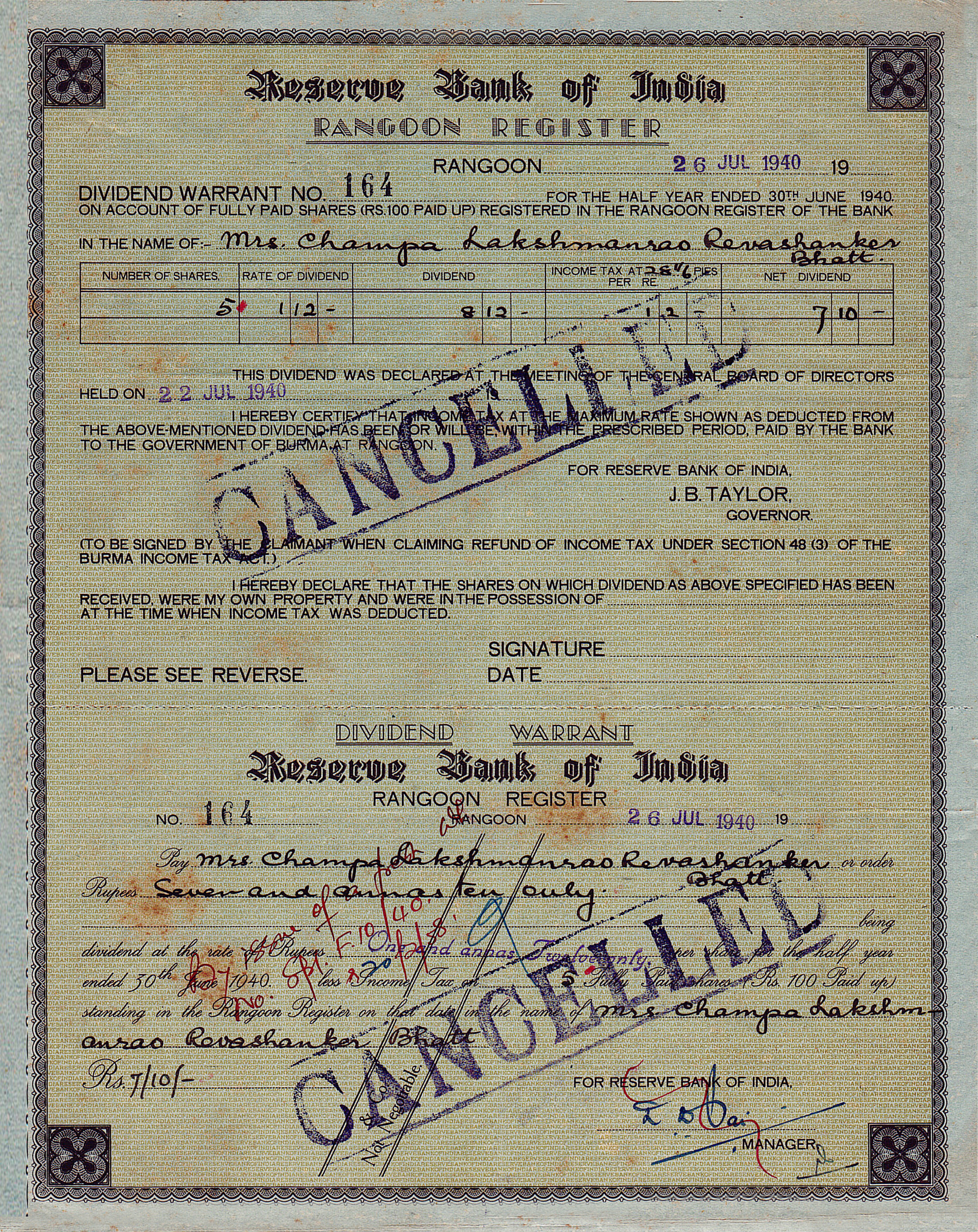
Reserve Bank of India
Credit: From the collection of security certificates owned by the Cassim family from Chennai, India; namely Mr Sayeed Cassim, Ms Maleeha Cassim, Ms Misbah Cassim, and Mr Adil Cassim.

The Megna Mills Company Ltd
Credit: From the collection of security certificates owned by the Cassim family from Chennai, India; namely Mr Sayeed Cassim, Ms Maleeha Cassim, Ms Misbah Cassim, and Mr Adil Cassim.
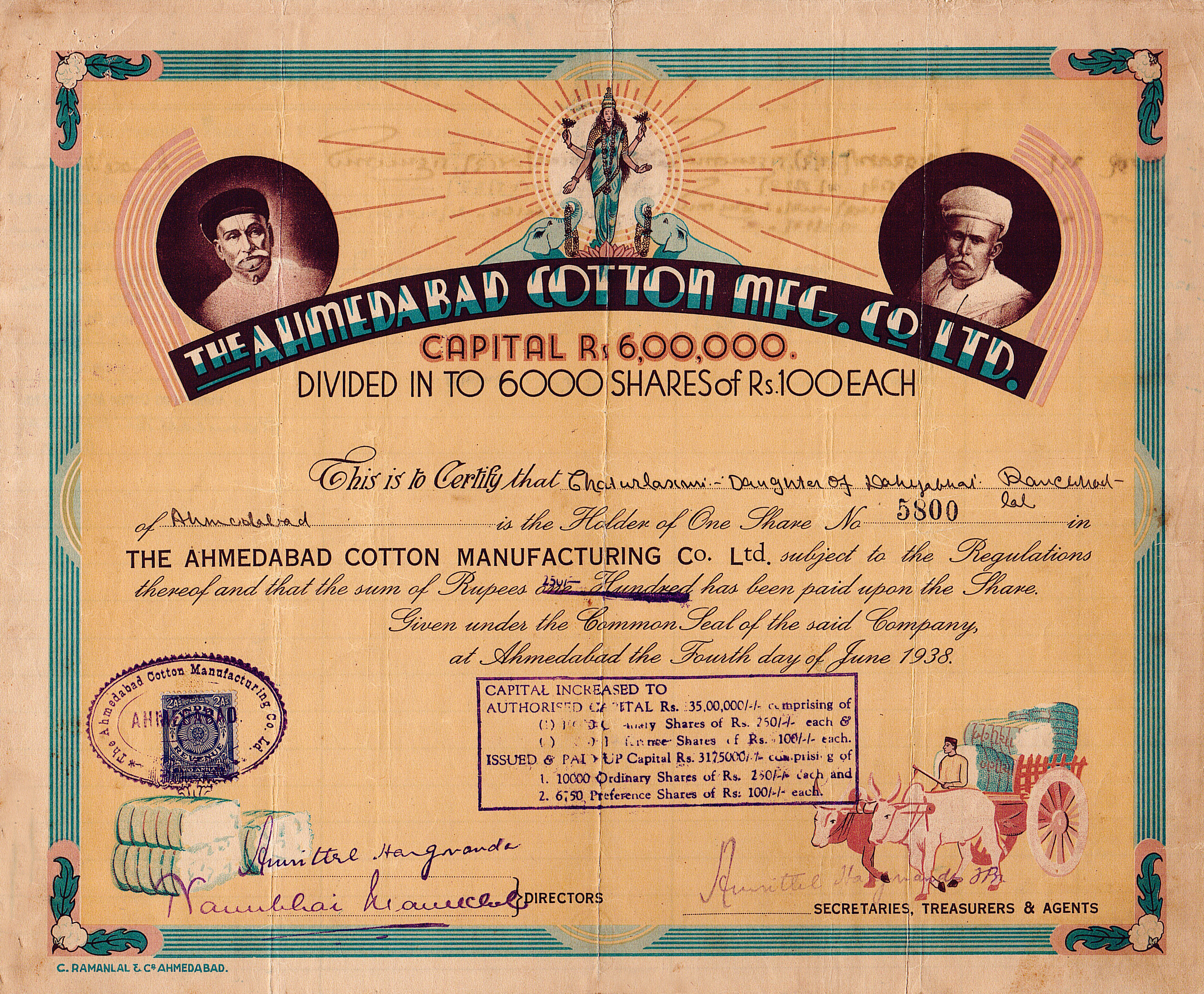
The Ahmedabad Cotton Manufacturing Company Limited
Credit: From the collection of security certificates owned by the Cassim family from Chennai, India; namely Mr Sayeed Cassim, Ms Maleeha Cassim, Ms Misbah Cassim, and Mr Adil Cassim.


